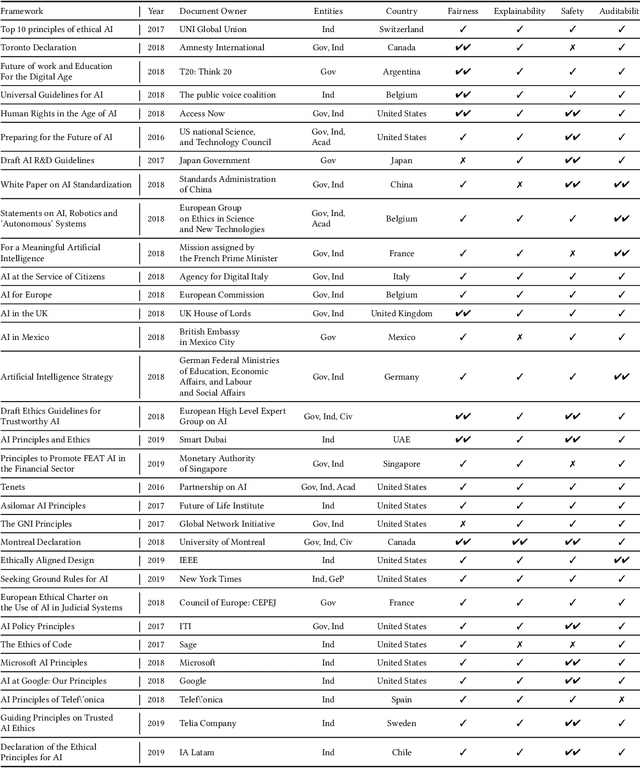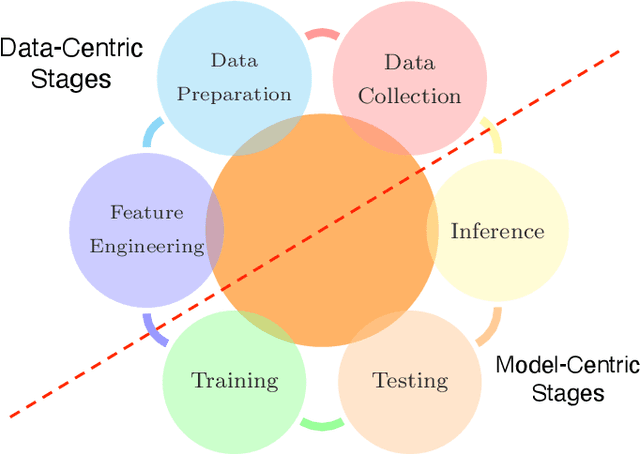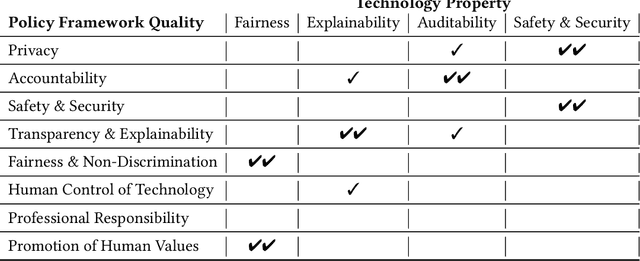Magdalene Ng
Technologies for Trustworthy Machine Learning: A Survey in a Socio-Technical Context
Jul 17, 2020


Abstract:Concerns about the societal impact of AI-based services and systems has encouraged governments and other organisations around the world to propose AI policy frameworks to address fairness, accountability, transparency and related topics. To achieve the objectives of these frameworks, the data and software engineers who build machine-learning systems require knowledge about a variety of relevant supporting tools and techniques. In this paper we provide an overview of technologies that support building trustworthy machine learning systems, i.e., systems whose properties justify that people place trust in them. We argue that four categories of system properties are instrumental in achieving the policy objectives, namely fairness, explainability, auditability and safety & security (FEAS). We discuss how these properties need to be considered across all stages of the machine learning life cycle, from data collection through run-time model inference. As a consequence, we survey in this paper the main technologies with respect to all four of the FEAS properties, for data-centric as well as model-centric stages of the machine learning system life cycle. We conclude with an identification of open research problems, with a particular focus on the connection between trustworthy machine learning technologies and their implications for individuals and society.
 Add to Chrome
Add to Chrome Add to Firefox
Add to Firefox Add to Edge
Add to Edge